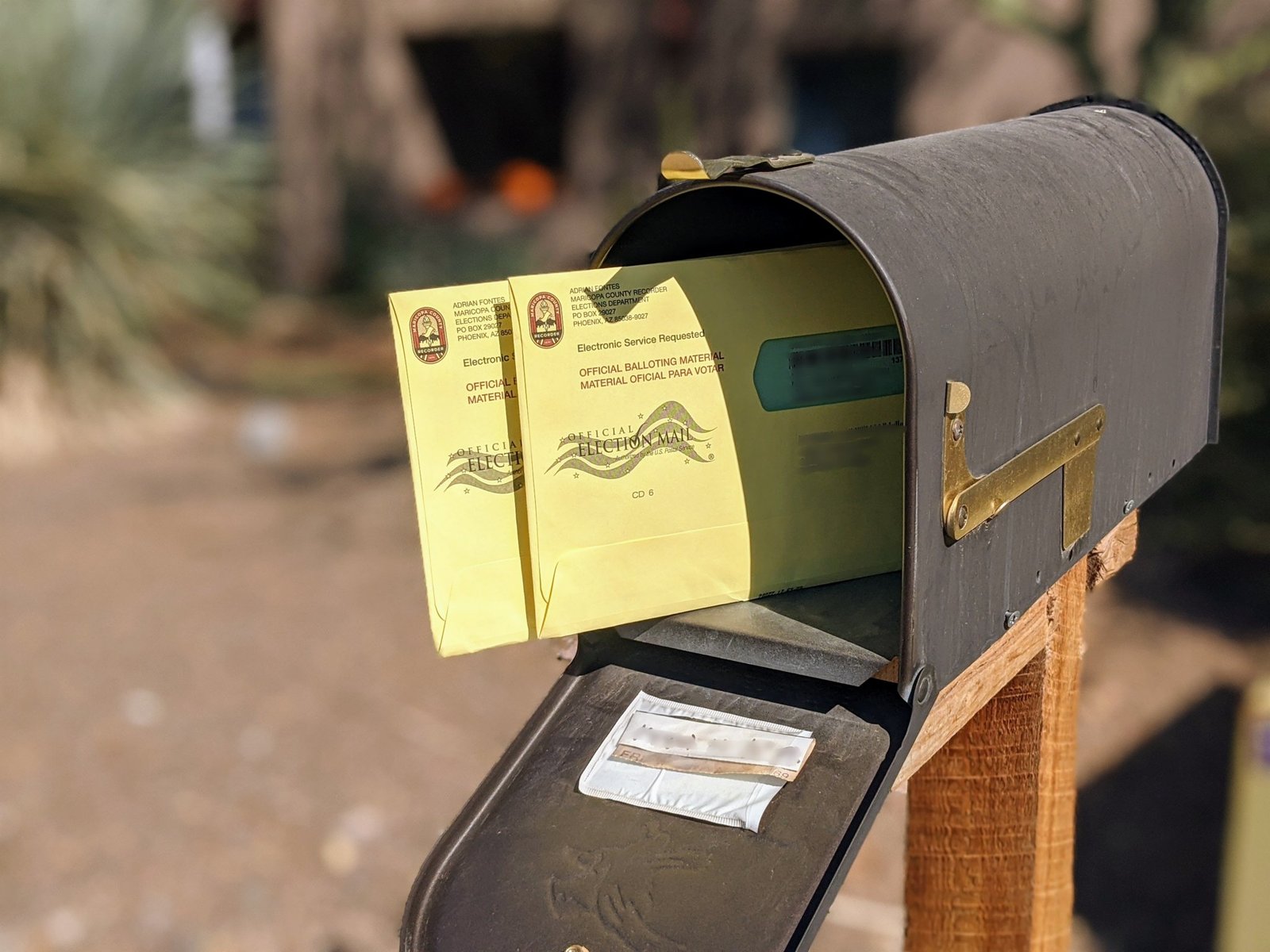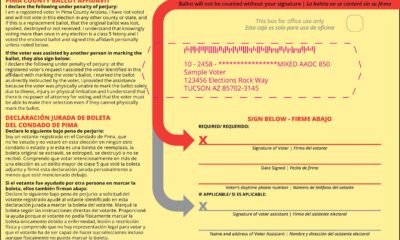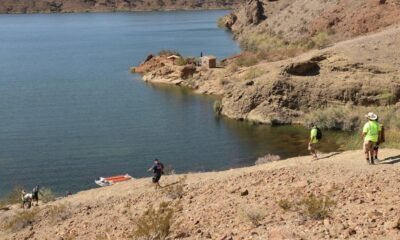Active Early Voting List
More AZ Counties Embrace Florida-Style Early Voting Reforms as GOP Gains Momentum

Republicans in the Arizona Legislature are advocating for significant changes to the state’s election laws, likening their plans to Florida’s system, a move that has gained traction among the majority of the state’s 15 counties for the first time in years.
This renewed momentum comes after a shift in political leadership; former GOP Representative Justin Heap recently succeeded in taking over the Maricopa County Recorder’s Office, previously held by Stephen Richer, who had defended the integrity of election processes. The Maricopa County Board of Supervisors also experienced a shake-up, with several members who supported the county’s election practices during the controversial Cyber Ninjas audit facing electoral defeats or opting out of reelection.
On Wednesday, lawmakers from both chambers convened to discuss their objectives of aligning Arizona’s election laws more closely with those of Florida, emphasizing the need for expedited results reporting. The House of Representatives initiated the first of two meetings of the Ad Hoc Committee on Election Integrity and Florida-style Voting Systems, setting the groundwork for proposed legislative changes.
The Senate Judiciary and Elections Committee reviewed a Florida-style elections bill, voting 4-3 along party lines to push the amended version to the full Senate. Senate Bill 1011, led by Senate President Warren Petersen, aims to abolish the popular option for voters to return early ballots to polling places in the final days leading up to Election Day. The bill’s supporters argue that eliminating the time-consuming practice of signature verification for late ballots will hasten results and restore voter confidence in the electoral process.
Despite these claims, skepticism remains. Senators like Mark Finchem and Wendy Rogers have been vocal critics of prior election outcomes, claiming Arizona’s slow ballot counting made it a national embarrassment. Historically, the state has taken up to two weeks to report complete results, but this timeline has come under scrutiny as Arizona evolved into a battleground state. The stakes have risen, complicating the forecasting of outcomes on election night.
Should the Senate proposal pass, voters submitting ballots after 7 p.m. the Friday before an election would need to either deliver their early ballots directly to county recorders or vote in person, requiring proper identification. In addition, the proposal seeks to extend early in-person voting to the Saturday and Monday leading up to elections, although a recent amendment removed the obligation for counties to provide polling locations on those days.
Concerns have been raised about potential disparities between counties in offering early voting services, which could contravene the 14th Amendment’s equal protection clause. Voting rights advocates express alarm, fearing that unaware voters might encounter obstacles such as new deadlines and ID requirements, potentially disenfranchising thousands.
Senator Analise Ortiz criticized the proposal, calling it a detrimental effort to complicate early ballot drop-off procedures. While Republican supporters label the changes as minor adjustments, stakeholders like Antonio Ramirez of Rural Arizona Action have highlighted the unique challenges you could face, particularly for Native American voters who may lack physical addresses to receive mail reliably.
Jen Marson, executive director of the Arizona Association of Counties, indicated some counties support SB1011 but emphasized the necessity for additional funding to inform voters about significant upcoming changes. Maricopa County Board of Supervisors Chairman Thomas Galvin expressed backing for the legislation, suggesting it would ease burdens on election workers and enhance access to early voting.
In a related move, House member Alexander Kolodin proposed a resolution for a ballot measure aimed for 2026, which would replace signature verification with unique identification numbers written on ballots. This swift action aims to circumvent potential gubernatorial vetoes. Meanwhile, recorders would face new challenges in verifying voter addresses, complicating an already intricate system.
The divide between Arizona and Florida’s voting environments further complicates the proposed changes, given the demographic and geographical differences. Florida’s counties are generally smaller and more populous, posing a stark contrast to Arizona’s larger counties.
The debate continues as legislators weigh the benefits of accelerated reporting against potential voter disenfranchisement, making this a pivotal moment for Arizona’s electoral future.


















